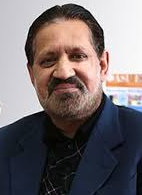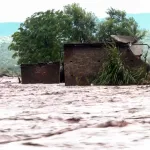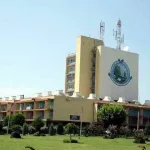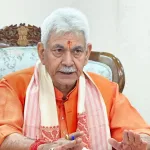COORG is the anglicised name for Kodagu, a hilly district in Karnataka, South India. It is said that if you spend even a day in Coorg, two things strike you at once: the gun on the wall and the coffee in your cup. Both are treated with equal reverence.
As the locals quip: “A Kodava is born with a gun in one hand and a coffee filter in the other.” A visitor once teased that even scarecrows here carry rifles. A farmer shot back: “Why not? Even the crows in Coorg are brave!”
Sharing my musings of the place from this weekend trip
Remember, Coorgs, like the Parsis, continue to punch far above their weight in India’s story- larrucularly in few fields.
Soldier Heroes:
Field Marshal K.M. Cariappa
The first Indian Commander-in-Chief of the Army (1949), Cariappa was carved in discipline. His spine straighter than a rifle barrel, his humour dry as army biscuits, his very dog was said to obey parade-ground orders.
“Once I wear the uniform, I am neither Hindu nor Muslim. I am an Indian soldier,” he famously declared.
A politician once asked why soldiers couldn’t go home to vote during elections. Cariappa’s reply was swift and surgical: “If a soldier thinks of elections while guarding the border, the enemy will win the vote without contest.”
His sense of timing became legend. Before a 7 pm appointment, Gen. Thimayya once prepared early, shining his boots and pressing his uniform. Cariappa, spotting this, calmly measured the distance and strolled out -arriving at exactly 7. Punctuality as performance art.
But his greatest moment came during the Indo-Pak war, when his son, Flt Lt K.C. “Nanda” Cariappa, was shot down and captured by Pakistan. Gen. Ayub Khan offered to release him at once. Cariappa declined, saying: “They are all my sons. Treat him no differently from any other Indian prisoner of war.” Duty over blood, fairness over favour — the code of honour made flesh.
Today, Air Marshal (Retd.) Nanda Cariappa lives in the ancestral home, surrounded by coffee plantations – the soil that raised a Field Marshal.
General K.S. Thimayya
If Cariappa was the stern father figure, Gen. K.S. Thimayya was the warm, approachable uncle of the Indian Army. Known for his charisma, he was happiest in the field, sipping tea with jawans and winning their loyalty.
In the 1947–48 Kashmir operations, his improvisation saved hopeless situations. “Timmy,” as he was affectionately called, belonged less to drawing rooms and more to trenches.
Unafraid of authority, he resigned in 1959, frustrated with Defence Minister Krishna Menon’s meddling. Nehru persuaded him to withdraw it, but his warnings went unheeded -and the 1962 debacle proved him right.
Even his fastidious grooming had purpose. When Cariappa once teased him for his spotless turnout, Thimayya quipped: “If the uniform’s ready for inspection, half the battle is already won.” Strategy in starch and polish.
Chief of Army Staff from 1957 to 1961, his ancestral home today stands as a museum of courage.
Museum of Valour
Inaugurated in 2021 by President Ram Nath Kovind, General Thimayya’s ancestral home has been converted into a museum. Its halls house artifacts, photographs, and memorabilia that speak of a soldier whose candour and leadership shaped Indian military history.
The museum is not just about artefacts — rifles, uniforms, and military memorabilia – it is about atmosphere. Visitors leave with the sense that Thimayya’s life was not confined to battlefields alone but was interwoven with the soil, traditions, and spirit of Coorg.
It is both a tribute to a soldier who stood tall in war and a celebration of a people whose lives blend coffee, culture, and courage in equal measure.
As the popular local saying goes, “The Kodava will never leave his gun, his land, or his word.”
Sadly, Kodavas’ (Coorgis) army representation has declined due to small population base (3.5 lacs approx), end of “martial race” recruitment quotas, economic diversification into coffee/urban jobs, and broader all-India army intake policies reducing regional concentration.
Customs that Defy Convention
A unique community with their own indigenous faith and customs, though broadly identified with Hinduism today.
Weddings
Kodava weddings need no priests. Elders bless the couple, arms are given as dowry, and community outweighs ritual pomp.
Burial
Though Hindus, the Kodavas bury their dead. Clan elders, not priests, guide the rites-emphasising community over orthodoxy. However, in recent decades, some Kodava families influenced by mainstream Hindu practices have also adopted cremation.
Saris
Kodava women wear their sari with pleats tucked at the back, pallu over the right shoulder. Locals joke it was the most “practical battle dress ever”: front free for a dagger, right arm free for work, left arm free to cradle a child or coffee basket.
Cusine
Kodava cuisine celebrates rice, pork, and forest produce—flavored with kachampuli’s tang, earthy spices, and seasonal greens. Balanced by mild rice dumplings and rich coffee, it is rustic, bold, yet harmoniously spiced. And, of course, filter coffee!
Sports Ecosystem
The Coorg Family Hockey Tournament is among the world’s largest family-based sporting carnivals -a mirror of the Kodava spirit, where competition is fierce but smiles never fade.
Coorg has gifted India giants: M.P. Ganesh, B.P. Govinda, M.M. Somaya, A.B. Subbaiah in hockey; Robin Uthappa and Stuart Binny in cricket; Rohan Bopanna in tennis; and sprinter Ashwini Nachappa, who once outran P.T. Usha. In Coorg, every home seems to nurture both coffee and champions.
There are many other fields also where there contribution is notable.
My close friend Raj Chengappa, Editorial Director, India Today Group is also a proud and distinguished Kodava (Coorgi). As was C.B. Muthamma- the first woman Indian Foreign Service Officer of 1949 batch, and many others.
Stay
Heritage Resort, Coorg, is a serene retreat amidst forested hills, misty plantations, and tranquil countryside.
Semi-detached cottages and villas blend traditional charm-tiled floors, thatched roofs-with modern comforts and private balconies.
Scotland of India
It was the British writer Reginald Robert Cole who once described Coorg (in his 19th-century travel notes) as “the Scotland of India”, not just for its rolling green hills and bracing climate, but also for the fierce independence and martial traditions of its people. It is also described Kashmir of South!
Truly the place reveals itself as a world apart, both ancient and alive. And a traveller/ tourist invariably carries a slice of Coorg’s soul with him/ her and will always remember: “Give a Coorgi coffee at dawn, and he will fight till dusk.”
(The Author works as Advisor with reputed Apeejay Education, New Delhi)








